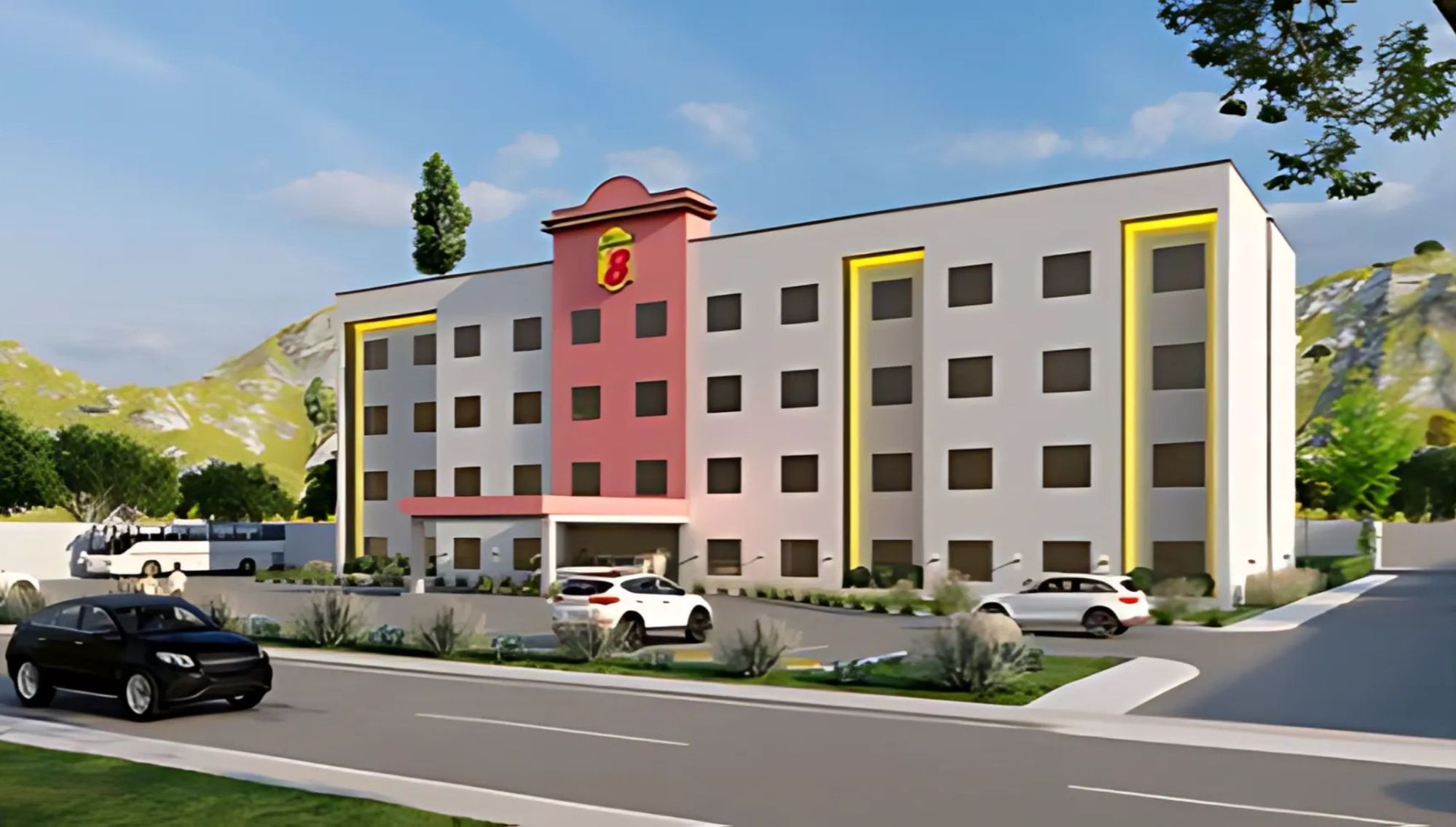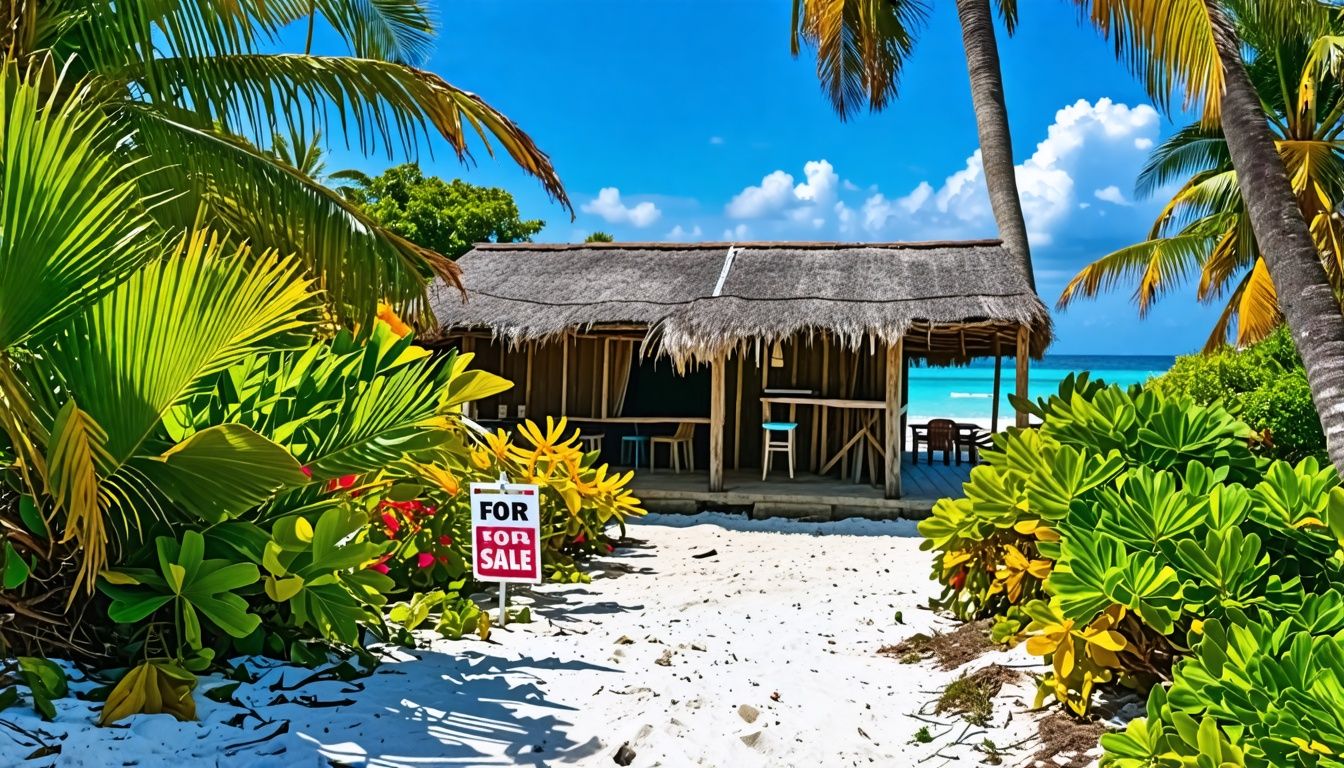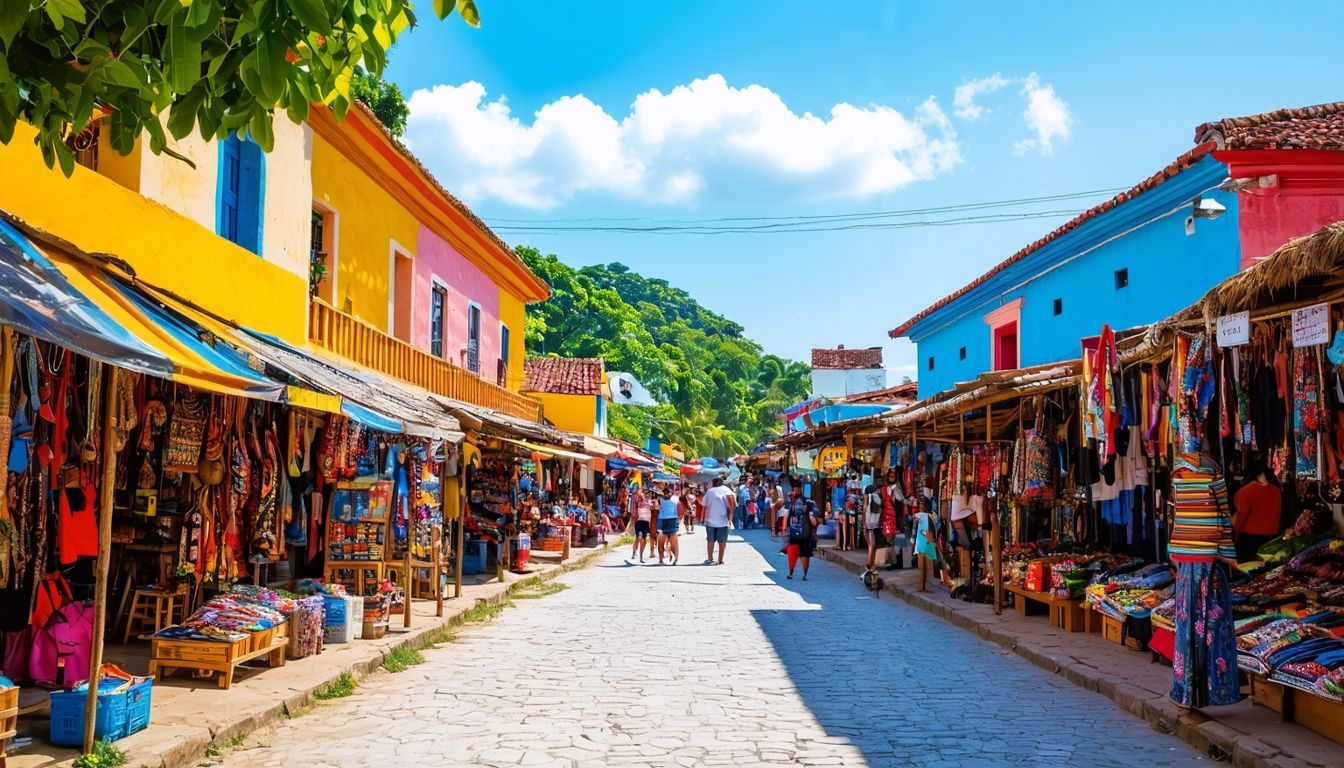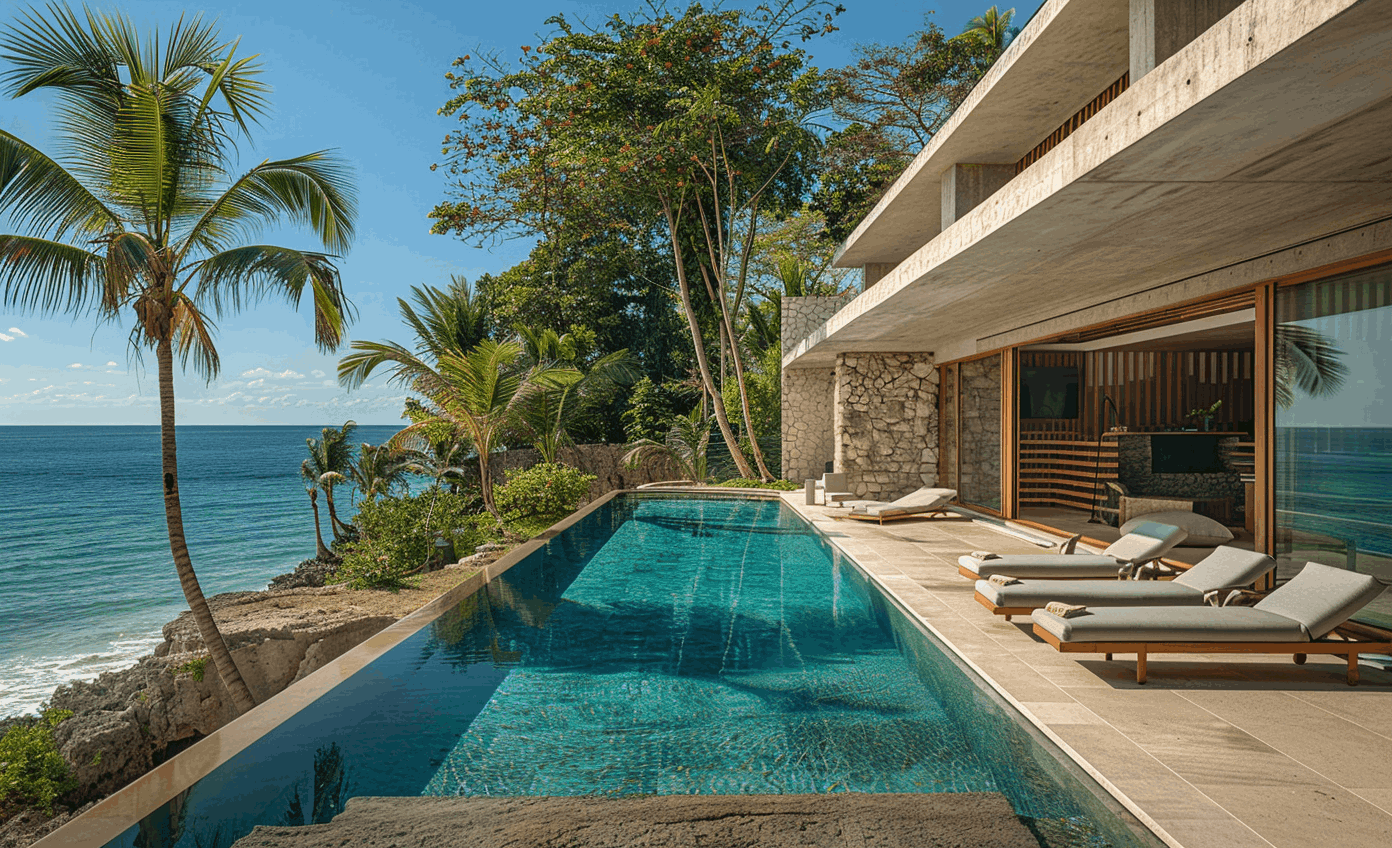Tips For Expats Buying Property in The Dominican Republic

Are you an expat dreaming of owning property in the Dominican Republic? Buying real estate abroad can be tricky. The Dominican Republic offers foreigners the chance to buy property with few restrictions. 2 This guide will walk you through the key steps and tips for purchasing your slice of paradise. Ready to make your dream a reality?
Key Takeaways
- Foreigners can freely buy property in the Dominican Republic with just a valid passport and funds, enjoying the same rights as citizens.
- Popular locations for expat buyers include Santo Domingo, Punta Cana, Cap Cana, Las Terrenas, Bavaro, and La Romana.
- Closing costs typically range from 4% to 10% of the property's value, including a 3% transfer tax and other fees.
- The Dominican Republic offers residency through real estate investment for those purchasing property worth $200,000 or more.
- Common mistakes to avoid include neglecting title verification, ignoring outstanding debts, and rushing the purchase process without proper due diligence.
Can Foreigners Buy Property in the Dominican Republic?
Foreigners can freely purchase property in the Dominican Republic. The country welcomes international buyers, granting them the same property rights as citizens. 2 This open policy applies to both residents and non-residents alike.
To buy real estate, foreign nationals only need a valid passport and sufficient funds. 1
The Dominican Republic offers a unique opportunity for foreign investors to own a slice of paradise without bureaucratic hurdles, says Maria Gonzalez, a local real estate expert.
The process is straightforward, but due diligence is crucial. Engaging a reputable lawyer and trustworthy real estate agent is essential. They'll help navigate potential land registry issues and verify title deeds.
For those looking to invest $200,000 or more, the Dominican Republic offers an added perk - the chance to obtain residency through real estate investment.
Benefits of Buying Property in the Dominican Republic
Investing in Dominican Republic real estate offers significant advantages for expats. Property prices are notably lower than in many other countries, with attractive tax incentives sweetening the deal.
Foreign investors enjoy no income tax on pensions and social security, plus discounts on property taxes. This Caribbean nation boasts a stable political and economic climate, making it an appealing destination for long-term investments. 3
The Dominican Republic's thriving tourism industry and steady economic growth contribute to the potential for property value appreciation. With a population of over 11 million as of 2020, the country provides a robust rental market for those seeking income from their investments.
Retirees find the favorable cost of living particularly enticing, allowing their savings to stretch further. Moreover, purchasing real estate can pave the way to residency, granting visa-free access to 62 countries – a valuable perk for international travelers. 4
Best Places to Buy Property in the Dominican Republic
Santo Domingo, the capital city, offers a mix of modern amenities and rich history for property buyers. Its colonial zone boasts UNESCO World Heritage status, attracting tourists and investors alike. 5 Punta Cana stands out as a prime location, drawing nearly 8.5 million visitors in 2022. This coastal paradise features luxury resorts, pristine beaches, and a booming real estate market.
Cap Cana presents an exclusive option for high-end buyers seeking a resort-style community. Las Terrenas in Samana Province appeals to those looking for a strong rental market and European flair.
Bavaro shines with its new condos and apartment complexes, ideal for those seeking modern living near beautiful beaches. La Romana attracts upscale travelers and real estate enthusiasts with its golf courses and marina facilities.
"Location matters when buying real estate in the Dominican Republic. Punta Cana, Bavaro, and Cap Cana offer stunning beaches and luxurious ..." 6
Legal Considerations and Real Estate Laws
Legal considerations and real estate laws in the Dominican Republic are governed by Property Registry Law No. 108-05. This law outlines the framework for property ownership, transfers, and registration.
Expats must conduct a thorough title search and verify the government demarcation survey before purchasing property. These steps help ensure the property's legal status and prevent future disputes. 7
Understanding tax implications is crucial for foreign buyers. The Dominican Republic imposes various taxes on real estate transactions, including transfer tax and capital gains tax.
Obtaining necessary permits and complying with local regulations is essential. Sellers are obligated to sign the Deed of Sale upon final payment, and buyers must secure a Certificate of Title to prove ownership.
Legal assistance from a reputable notary public is vital throughout the transaction process. The next section will explore the steps involved in buying property in the Dominican Republic. 8
Steps to Buying Property
The process of buying property in the Dominican Republic involves several key steps. Following these steps carefully can help ensure a smooth and successful transaction.
- Find a reputable real estate agent: Work with a licensed agent who knows the local market and can guide you through the process.
- Conduct property searches: Explore various options that fit your budget and preferences in desired locations. 10
- Make an offer: Once you've found a suitable property, submit a formal offer through your agent.
- Sign a Promise of Sale Contract: After agreeing on the price, sign this contract and pay a 10% deposit into an escrow account.
- Perform due diligence: Hire a lawyer to conduct title searches, check for liens, and verify the property's legal status. 9
- Obtain necessary documents: Gather identification, deed of sale, and certificate of title for the transaction.
- Complete the purchase: Sign the Contrato de Venta (deed of sale) in front of a notary public to finalize the transaction.
- Pay closing costs: Cover expenses such as legal fees, transfer taxes, and other associated costs.
- Register the property: File the necessary paperwork with the Title Registry Office to transfer ownership.
- Obtain residency (optional): If desired, use your property investment to apply for Dominican residency. 9
Understanding the legal considerations and real estate laws is crucial for a successful property purchase in the Dominican Republic.
Closing Costs and Additional Expenses
Buying property in the Dominican Republic comes with extra costs beyond the purchase price. Closing costs typically range from 4% to 10% of the property's value. These include a 3% transfer tax, notary fees, stamp duty, and real estate agent fees. 11 Attorney fees add another 1% to 1.5% of the purchase price.
Expats should budget for translation services, which can cost up to $200 for the sales contract. A surveyor for due diligence might charge up to $600. Smart buyers factor in these expenses early to avoid surprises.
Understanding these costs helps foreign investors make informed decisions about their real estate investments in this Caribbean paradise. 12
Real Estate Taxes in the Dominican Republic
Real estate taxes in the Dominican Republic are relatively low compared to many other countries. Property owners face an annual tax of 1% on values exceeding RD$9,860,649 (about $128,477).
This tax applies to both residents and non-residents. For those selling property, a capital gains tax of 25-27% on profits applies. Rental income is taxed at 27% after deducting expenses. 13
Investors can benefit from tax incentives in certain cases. Properties certified by Confotur may qualify for up to 15 years of tax exemptions. A 3% transfer tax is due when buying property, based on the purchase price or 70% of market value.
These tax rates and thresholds can change, so consulting a local tax expert is crucial for up-to-date information. 14
Financing Options for Expats
Expats eyeing property in the Dominican Republic have several financing options. Local banks offer mortgage loans to foreigners, with rates for 20-year terms ranging from 10% to 14%.
Eligibility criteria vary among lenders, so it's crucial to shop around. Some expats opt for international financing or leverage equity from properties in their home countries. 9
For those seeking residency through real estate investment, a minimum purchase of $200,000 is required. This path offers a dual benefit: property ownership and a route to Dominican citizenship.
Prospective buyers should consider the tax implications, including property transfer taxes and potential capital gains. It's wise to consult with real estate agencies and financial advisors familiar with expat transactions to navigate the process smoothly. 15
Obtaining Residency Through Real Estate
Financing options for expats often lead to considerations about long-term residency. The Dominican Republic offers a unique opportunity for property investors to secure residency through real estate purchases.
This program requires a minimum investment of $200,000 in a government-approved project. 16 Successful applicants gain visa-free access to 62 countries, opening doors for international travel and business opportunities.
The process involves several steps and documents. Investors must provide a notarized letter from a financial guarantor and obtain a Certificate of Investor. 12 Additional required paperwork includes a certified copy of passport, birth and marriage certificates, and police clearance.
The initial residency granted is provisional, with renewals every two years. This pathway combines property ownership with expanded global mobility, making it an attractive option for foreign investors seeking a Caribbean base.
Tips for Choosing the Right Real Estate Agency
Selecting the right real estate agency is crucial for a successful property purchase in the Dominican Republic. Start by exploring online directories and social media platforms to find potential agents.
Check their credentials, reputation, and experience in the local market. Ask about their specialization and commission rates. 17 A good agency should have extensive knowledge of the area's property values, legal requirements, and market trends. 17
Test the agency's responsiveness and communication skills. Prompt replies and clear explanations are vital for a smooth transaction. Request references from previous clients to gauge their satisfaction.
Look for an agent who understands expat needs and can guide you through the intricacies of foreign investment. A reputable agency will help you navigate contracts, taxes, and legal considerations specific to the Dominican Republic's real estate landscape. 18
Key Considerations for Pre-Sale or Under Construction Properties
Pre-sale or under-construction properties in the Dominican Republic can offer attractive prices and customization options. Yet, they come with unique risks. Buyers must scrutinize the developer's track record and financial stability.
It's crucial to verify project permits, construction timelines, and completion guarantees. Expats should also consider potential delays and cost overruns that could impact their investment. 19
Contractual safeguards play a vital role in protecting buyers' interests. A well-drafted purchase agreement should outline clear terms for payments, delivery dates, and quality standards.
Escrow accounts can safeguard deposits until project completion. Regular site visits and progress reports help monitor construction quality and adherence to plans. Smart investors often engage local real estate agents and legal experts to navigate these complexities.
The next section explores tips for choosing the right real estate agency to assist with your property purchase. 20
Supplementary Tips for Prospective Buyers
Expats buying property in the Dominican Republic need extra tips to make smart decisions. These include knowing how to make a formal offer, understanding the Promise of Sale document, and signing the Deed of Sale correctly.
Get the full scoop on these crucial steps to protect your investment and ensure a smooth purchase process.
How to Make a Formal Offer
Making a formal offer on property in the Dominican Republic starts with verbal negotiations. Once you've agreed on terms, submit a written offer outlining the sale details. This document should include the purchase price, payment schedule, and any conditions.
A "good faith" deposit, typically refundable during due diligence, often accompanies the offer.12
Engaging a local lawyer is crucial for navigating real estate laws and ensuring a smooth transaction. Your attorney will help draft the offer, review contracts, and protect your interests throughout the process.
They'll also assist with title searches and verify the property's legal status before you proceed with the purchase. 9
Importance of the Promise of Sale Document
After making a formal offer, the next crucial step is securing the Promise of Sale document. This legally binding agreement serves as the foundation for the property transaction. It outlines all essential details, including the parties involved, property description, price, and payment terms.
The Promise of Sale protects both the buyer and seller by clearly stating the conditions of the sale. 10
A well-drafted Promise of Sale document includes a default clause and handover date, ensuring clarity on timelines and consequences. Real estate investors should enlist a lawyer to review this critical paperwork.
This step safeguards their interests and helps avoid potential pitfalls in the conveyance process. The Promise of Sale acts as a vital tool in navigating the Dominican Republic's property market, especially for expats seeking investment properties or vacation rentals. 8
Signing the Deed of Sale
Moving from the Promise of Sale Document, we reach the crucial step of signing the Deed of Sale. This legal document finalizes the property transfer and marks the end of the buying process.
The seller must sign the Deed of Sale upon receiving the final payment. 8 A Notary Public oversees this signing, ensuring its legality and authenticity. The document transfers ownership from the seller to the buyer officially.
It's important to note that payments aren't tied to clear title availability. 21 Buyers should be aware of this to protect their interests during the transaction. The Deed of Sale acts as proof of ownership and is essential for tax purposes, future sales, or obtaining loans against the property.
Common Challenges and How to Address Them
Expats face unique hurdles when buying property in the Dominican Republic. Language barriers, unfamiliar legal systems, and cultural differences can complicate the process. Smart buyers prepare by learning local customs, working with bilingual professionals, and staying patient throughout negotiations.
Common Mistakes to Avoid When Buying Property in the Dominican Republic
Buying property in the Dominican Republic can be an exciting venture, but it's fraught with potential pitfalls. Here are some common mistakes to avoid during your real estate journey:
- Neglecting property title verification: Failing to check the legal status of a property can lead to ownership disputes. Always conduct a thorough title search through the Land Registry Office. 22
- Ignoring outstanding debts: Unpaid utility bills or rubbish collection fees can become your responsibility. Request proof of payment for all utilities and services before closing the deal. 23
- Skipping due diligence: Overlooking tax checks and property assessments can result in unexpected financial burdens. Hire a reputable lawyer to perform comprehensive due diligence.
- Relying on verbal agreements: Handshake deals don't hold up in court. Get all promises and agreements in writing, especially the Promise of Sale document.
- Choosing inexperienced professionals: Working with unqualified real estate agents or lawyers can lead to costly errors. Select professionals with proven track records in Dominican property transactions.
- Underestimating closing costs: Many buyers forget to factor in additional expenses like transfer taxes and notary fees. Budget for approximately 5-7% of the purchase price for closing costs.
- Misunderstanding tax obligations: Ignorance of local tax laws can result in penalties. Familiarize yourself with property taxes, capital gains taxes, and rental income taxation in the Dominican Republic.
- Overlooking zoning regulations: Failing to check local zoning laws can derail construction or renovation plans. Verify the property's zoning status and permitted uses before purchasing.
- Rushing the purchase process: Hasty decisions often lead to buyer's remorse. Take time to research the market, visit multiple properties, and consider your long-term goals.
- Neglecting property inspections: Skipping professional inspections can result in costly surprises later. Hire qualified inspectors to assess the property's condition, including structural integrity and potential pest issues.
- Mismanaging down payments: Paying too much upfront without proper safeguards can be risky. Use escrow services for large deposits and ensure all payments are documented.
- Overlooking currency exchange risks: Fluctuating exchange rates can impact your investment. Consider working with a currency specialist to manage foreign exchange transactions.
- Ignoring local market conditions: Failing to research local property values and market trends can lead to overpaying. Study recent sales data and consult local real estate experts for accurate pricing information.
- Neglecting to obtain proper permits: Building or renovating without necessary approvals can result in fines or demolition orders. Always secure required permits before starting any construction work.
- Underestimating maintenance costs: Many buyers forget to budget for ongoing property upkeep. Factor in regular maintenance expenses, especially for beachfront properties exposed to salt air and humidity.
Benefits of Renting Out Your Property
Renting out your Dominican Republic property offers substantial financial benefits. It generates passive income, offsetting ownership costs and potentially yielding profits. The country's thriving tourism industry ensures a steady stream of short-term renters, especially in popular coastal areas.
This demand translates to higher rental rates and increased occupancy. 24
Property investments in the Dominican Republic can serve as effective hedges against economic inflation. Real estate values tend to appreciate over time, outpacing inflation rates.
Additionally, rental income provides a cushion against market fluctuations. Owners can leverage their properties for tax advantages, deducting expenses related to maintenance, property management, and mortgage interest payments. 25
Conclusion
Buying property in the Dominican Republic offers expats exciting opportunities. With careful planning and expert guidance, you can find your dream home in paradise. Thorough research and due diligence are crucial for a smooth purchase process.
Local laws and customs may differ, so partnering with reputable professionals is key. Armed with these tips, you're ready to make an informed investment in your Caribbean future.
FAQs
1. What should expats know about tax payments when buying property in the Dominican Republic?
Expats must understand local tax laws. The Dominican Republic has unique rules for property taxes and interest income. Keep all receipts for tax purposes. Consult a local expert to navigate corporate taxes and ensure compliance.
2. How do interest rates and GDP growth affect real estate investments in the Dominican Republic?
Interest rates impact mortgages and loaned money. The country's gross domestic product growth reflects overall economic activity. These factors influence property values and rental income potential. Stay informed about economic trends for smart investing.
3. What types of properties are popular among expats in the Dominican Republic?
Expats often choose condominiums, rental properties, and condo-hotels. Commercial real estate is also gaining popularity. Each option offers different benefits. Consider your goals – privacy, income, or a mix – when selecting property types.
4. Can buying property in the Dominican Republic lead to a second passport?
Yes, property investment can be a path to citizenship. The country offers programs linking real estate purchases to residency. This can lead to a second passport. Research the requirements and consult legal experts for guidance.
5. How can expats protect their investment from natural calamities in the Dominican Republic?
Insurance is crucial. The country faces risks like hurricanes. Choose properties in safer areas. Build a strong local network for support. Consider diversifying with commercial properties, which may have different risk profiles.
References
- ^ https://www.expat.com/forum/viewtopic.php?id=128125
- ^ https://www.expat.com/en/guide/central-america/dominican-republic/12427-buying-a-property-in-dominican-republic.html (2024-04-17)
- ^ https://buyincasalinda.com/lp/why-buy-property-in-the-dr/
- ^ https://www.theagency-dr.com/blog/20-Benefits-of-Investing-in-Dominican-Republic-Real-Estate (2024-02-21)
- ^ https://www.7thheavenproperties.com/2023/08/best-places-to-buy-property-in-dominican-republic/ (2023-08-20)
- ^ https://www.theagency-dr.com/blog/Best-Place-To-Buy-Real-Estate-In-Dominican-Republic (2024-04-14)
- ^ https://www.theagency-dr.com/blog/Real-Estate-Laws-and-Regulations-in-the-Dominican-Republic (2024-01-26)
- ^ https://drlawyer.com/buying-real-estate-in-the-dominican-republic/
- ^ https://thelatinvestor.com/blogs/news/dominican-real-estate-foreigner
- ^ https://realestatelasterrenas.com/article/how-to-buy-a-property-in-the-dominican-republic/
- ^ https://dominicantoday.com/dr/expats-corner/2023/12/13/the-closing-costs-for-buying-property-in-the-dominican-republic/ (2023-12-13)
- ^ https://internationalliving.com/countries/dominican-republic/dominican-republic-real-estate/ (2024-05-27)
- ^ https://www.theagency-dr.com/blog/Everything-You-Need-to-Know-About-Taxes-and-Fees-in-Real-Estate-In-The-Dominican-Republic (2024-05-13)
- ^ https://realtordr.com/dominican-republic-property-tax-guide/ (2024-04-15)
- ^ https://www.theagency-dr.com/blog/Property-financing-options-in-the-Dominican-Republic (2024-02-27)
- ^ https://samana-group.net/obtaining-dominican-residency-through-samana-groups-real-estate-investments/ (2024-01-27)
- ^ https://www.ruffo.com/news/blog-post-title-three-rkt8n (2023-05-28)
- ^ https://selectcaribbean.com/the-right-real-estate-agent-when-buying-property-in-the-dominican-republic/ (2023-04-13)
- ^ https://www.theagency-dr.com/blog/Thinking-About-Buying-Property-in-Dominican-Republic--Read-This-First (2024-06-24)
- ^ https://www.ushombi.com/2023/11/28/ins-and-outs-a-pre-sale-caribbean-home/ (2023-11-28)
- ^ https://realtordr.com/buying-process-explained-dominican-republic/
- ^ https://thelatinvestor.com/blogs/news/dominican-property-pitfalls (2023-12-16)
- ^ https://www.knightsbridgefx.com/what-are-the-pitfalls-of-buying-property-in-the-dominican-republic/ (2022-12-23)
- ^ https://medium.com/@amber12hicks/the-benefits-of-buying-property-in-the-dominican-republic-for-expats-e27ffdbe2a6a
- ^ https://simplydominican.com/benefits-investing-dominican-republic-real-estate/ (2024-05-24)
Categories
- All Blogs (61)
- agent (1)
- branded residence (1)
- business (2)
- buy (2)
- buying (23)
- cabarete (1)
- cap cana (6)
- caribbean (2)
- casa de campo (6)
- celebrity (2)
- commercial (1)
- construction (2)
- dominican republic (9)
- evaluation (1)
- event (1)
- financing (1)
- golf (2)
- golf resorts (2)
- Grupo De Vale (1)
- hotel (1)
- insurance (1)
- investing (26)
- las terrenas (1)
- law (3)
- lawyer (1)
- legal (1)
- luxury (1)
- market (1)
- north coast (2)
- properties (7)
- property inspection (1)
- property tax (1)
- puerto plata (1)
- punta cana (3)
- real esate (1)
- real estate (33)
- renting (5)
- resorts (1)
- selling (5)
- selling, (1)
- tax (3)
- usa (1)
- vacation rental (2)
Recent Posts










GET MORE INFORMATION NOW

